Eighth Meeting
What’s it all about???
This week the group were able to complete their designs and share their very important messages with the class. We talked about why our messages are very important and what we hoped could happen to make our ideas a reality.

The CP Investigators then discussed their thoughts and ideas about the project so far, in readiness for meeting their Headteacher next week…
Question for this week:
After spending time creating their designs and deciding upon important messages. The CP Investigator groups have been thinking more about empathy and why it is important to express our opinions and share our experiences with others. Have a conversation with your group about sharing and listening, let us know your ideas in the comments below.
Seventh Meeting
Inspiration and communication
This week the Children’s Parliament Investigators reflected on their design solutions and selected a message to make into a graphic communication. Using collaged paper, pens and tape the investigators created striking images that communicate their feelings around the themes discussed within the Children’s Parliament Investigates Bullying project.

Sixth Meeting
We are Designers

In this meeting, our Children’s Parliament investigators were introduced to some of the ideas behind graphic design.By exploring the visual elements and practicing their eye-for-design, the Investigators began to create a better solution to their Design Brief.
Children’s Parliament Investigates Bullying Design Brief:
Create a poster that will inspire and help others to make your school a happy, safe and friendly place to be. Your poster should include an inspirational message and you will use the visual elements to make your poster feel positive and eye-catching.
If you would like to try this activity in class then click the following links to download some resources to help you:
Eye for Design
Find a poster online that has been designed to help prevent bullying, you might want to choose one of the posters created by the CP Investigators. Once you have your poster, use the questions on this sheet to practice your eye-for-design and create your own poster success criteria: Eye for Design Questions Sheet
Design Brief
Download here: Design Brief
Share your finished posters with us on Twitter by using #CPinvestigates
Fifth Meeting
Think Feel Do

In this session the CP Investigators were asked to think about 5 adults they would talk to about being bullied; what do those adults need to THINK, FEEL & DO to help and what might adults THINK, FEEL & DO which may be unhelpful to them?
“Adults need to be nice.”
“What we need from adults is; Trust, Respect, Respect our Human Dignity, Talking and listening.”
“Tell the bullies off.”
“People you trust.”
“Family and Friends.”
“Negative responses – Can you help me? Deal with it yourself.”
“Positive responses – Please help me! OK how can I help.”
“Adults should think; Find out the whole story before I take action – But I think I can believe him because he doesn’t have a reason to lie
I have to do something to help –NOW!”
“I’ll help you. GO AWAY BULLY. I’ll tell a teacher.”
“Ideas are like seeds which take time to grow (talking about adults respecting children’s human dignity).”
“It would be really hard to do something if I saw someone being bullied. I would feel awkward.”
“Adults don’t always listen to children.”
“A PSA told me that they don’t like dealing with complaints and that I should deal with it myself. It made me feel really angry.”
“You can lose confidence in adults when they don’t listen.”
“I want to be respected and believed.”
“Adults need to find out the whole story before they act.”
“Telling my parents can be scary. If I speak up I might get into trouble.”
“Hitting back is the answer or it (bullying) just won’t stop. I asked for help and nothing happened.”
“It would be good if PSA’s and teachers got some training about how to deal with bullying.”

Question for this week
This week the CP investigators discussed how adults should respond when children ask for help and support with bullying.
- Some of the CP Investigators thought that children shouldn’t have to prove that they are not “telling tales” before adults act on their behalf.
- Other CP Investigators thought that adults shouldn’t “just believe” children, but investigate the situation so that everyone was fairly treated.
How do you think adults should respond for children who report bullying? Discuss with your group/class and let us know your ideas by leaving a comment at the bottom of the page.
Fourth Meeting
Sandy’s Story
In this meeting of Children’s Parliament Investigates… the investigators explored the concept of empathy through hearing about a young boy named Sandy.
Empathy is when you are able to see things from somebody else’s perspective. By putting ourselves in others’ shoes and feeling what someone else is feeling, we can better understand how our choices impact on other people.
Our CP Investigators listened to Sandy’s story and afterwards explored ways that the story could be better for Sandy. To read Sandy’s Story for yourself please click the link:
CP Investigates (Sandy’s Story)
The investigators made cartoons to illustrate what Sandy’s life was like before and after they made their changes.
Questions for this week
Suggested questions to discuss in class this week:
- Do you think empathy is important?
- Have you ever felt empathy for someone else?
Third Meeting
Dignometers
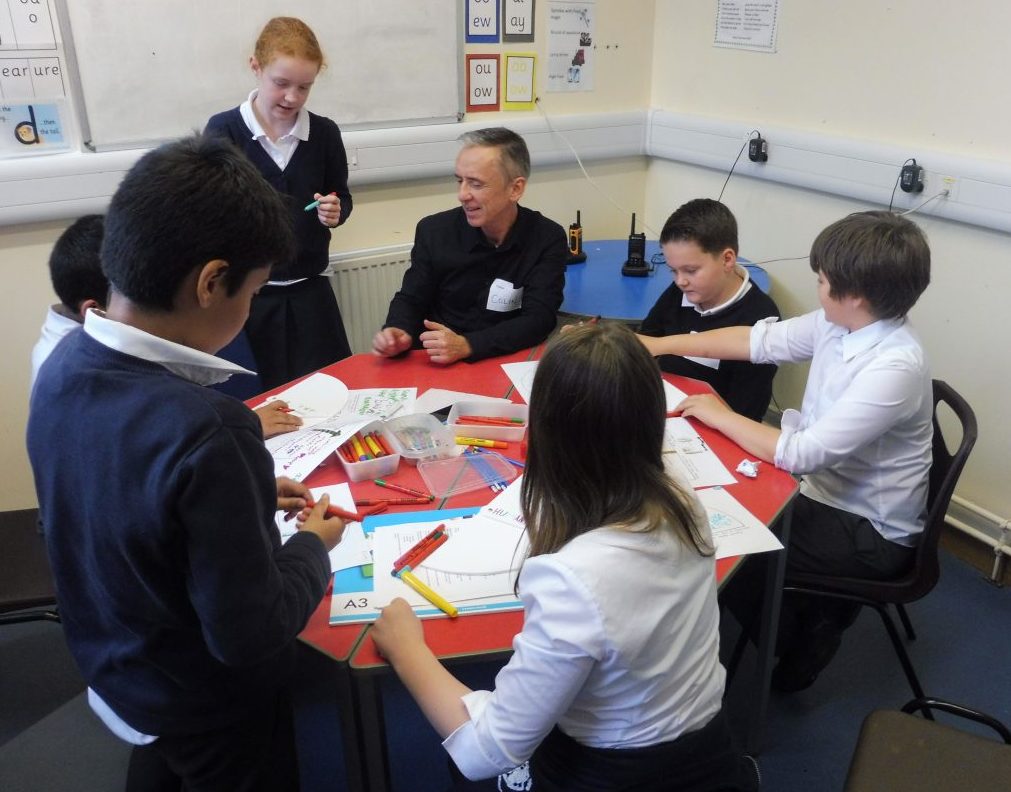
During this meeting we looked at the idea of human dignity. We discussed what we knew about human dignity and the feelings we experienced when our dignity was respected and promoted or how we felt when our dignity wasn’t respected and we were made to feel bad or small. In pairs we produced a “dignometer” which you can see on this page and we hope that you enjoy seeing how we wanted to represent our feelings using words, images and colour.


 When thinking about dignity CP Investigator, Rehan, came up with a brilliant visual of a cat and mouse. He said it represents when someone’s dignity isn’t being respected. It made us think about an imbalance of power and of feeling small and frightened. What image would you use to represent dignity?
When thinking about dignity CP Investigator, Rehan, came up with a brilliant visual of a cat and mouse. He said it represents when someone’s dignity isn’t being respected. It made us think about an imbalance of power and of feeling small and frightened. What image would you use to represent dignity?
What is HUMAN DIGNITY?
• Every human being is important and special. We call this human dignity.
• Respect for human dignity means that we should be friendly and kind to others and it is wrong to hurt other people or make them feel bad about themselves.
• No matter how others treat you, they never have the right to take away your human dignity.
• When you learn what human dignity means to you, you are less likely to accept when other people hurt, discriminate or put someone down.
What do you think a life lived with dignity means?
Questions for this week
Our CP Investigators have suggested these questions to discuss in class this week:
- Who is the first person you would talk to if your Human Dignity wasn’t being respected?
- Who do you rely on?
Second Meeting
Happy-Healthy-Safe School
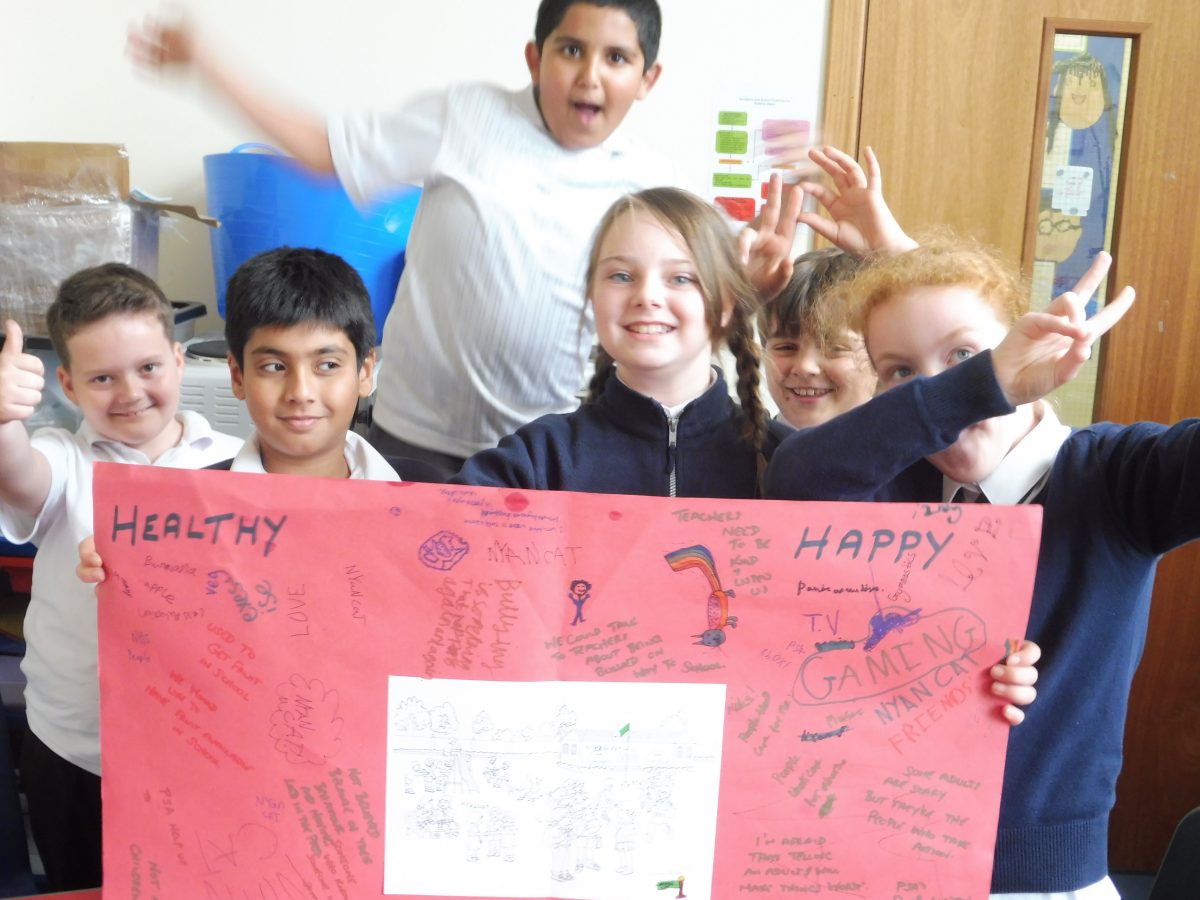
In our second team meeting we discussed and explored together what we think is needed to make a Healthy – Happy – Safe school. We thought about our journey to school, our time in the classroom and our time in the playground.
We used words and pictures to express our views and ideas which we will share with you here;
“We need adults that listen to you and take what we say seriously”
“We need someone who knows us – someone we trust – someone who listens”
“People that care for and protect others”
“People that care for you”
“We know that we can talk to our teachers if we are being bullied outside or on our way to school”
“Bullying is when something happens to you again and again”
“I was bullied by older children in P6 when I was in P3”
“When I told a PSA in the playground that a child in P1 had punched me I was told not to tell lies”
“ Sometimes children aren’t believed because they have misbehaved or told lies in the past”
“ Not all children are believed”
“ I wouldn’t want to talk about something that’s happened to me in front of the whole class”
“”I’m afraid that telling an adult will only make things worse”
“Some adults and teachers are scary and strict but they’re the people who make bullying stop if you can talk to them”
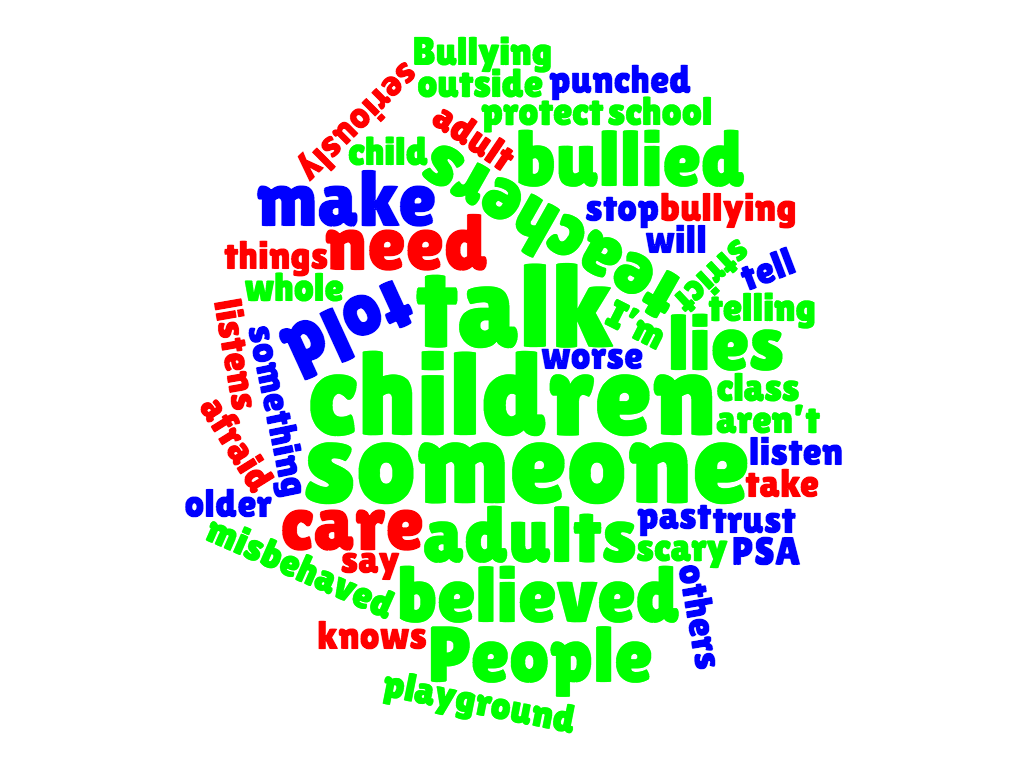
Questions
Discuss these questions and let us know what your group thought in the comments section at the bottom of this page (let us know which questions you are responding to in your comment):
- What can adults do to support children who are concerned about bullying?
- What do you think is needed to make school a healthy-happy-safe space for everyone?
First Meeting
Self Portraits and forming our team
Graeme and Ross from Children’s Parliament (CP) visited today to begin work with our 6 new Children’s Parliament Investigators (names from each school) on our CP Investigates Bullying Project.
Our first team meeting was about getting to know each other, being curious and asking questions about the project and discussing how we will work with each other as a team.
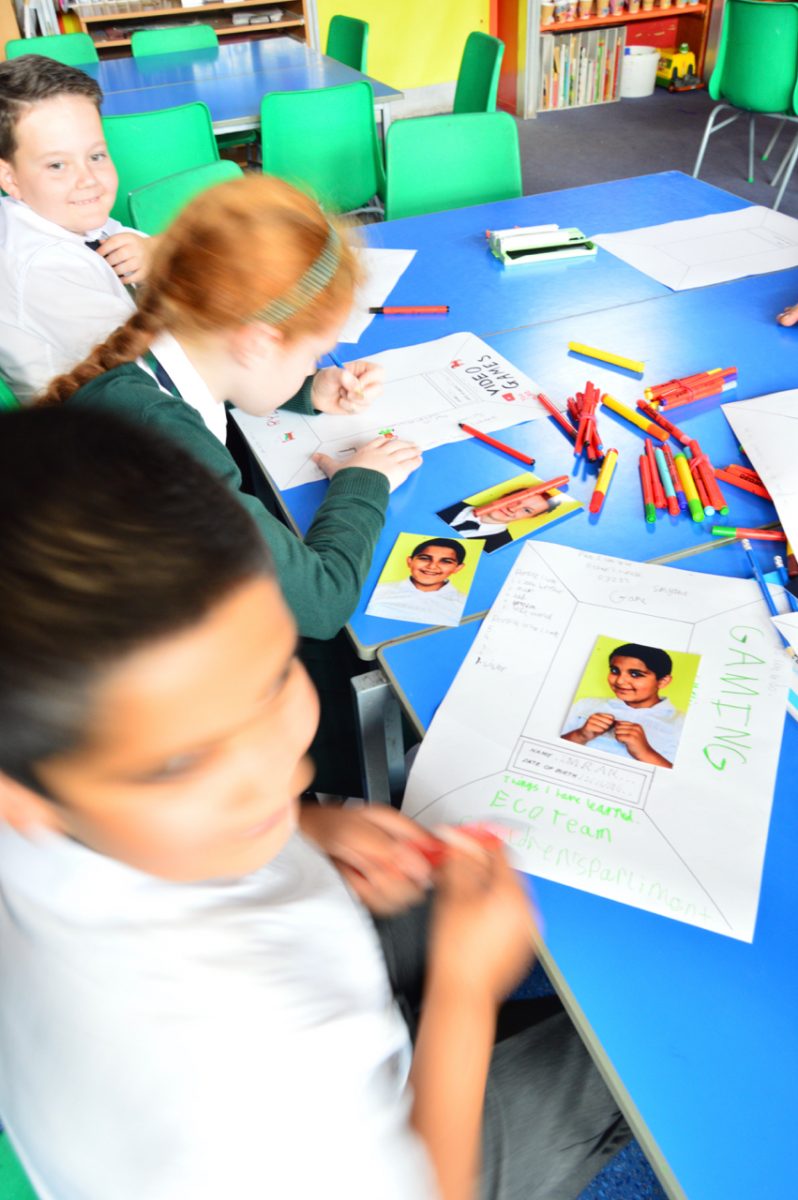 Ross took photographs of us and we used them to produce self-portraits which we used to think about and share with each other the “Things that we like to do – The places that we like to be – The people that we love and spend time with – The things that we have learned about the world and about ourselves”
Ross took photographs of us and we used them to produce self-portraits which we used to think about and share with each other the “Things that we like to do – The places that we like to be – The people that we love and spend time with – The things that we have learned about the world and about ourselves”
We thought about and discussed some of the most important things that we need to make a world that is healthy – happy and safe for us and for all children.
We hope that other members of our school community, Head teacher, teachers, PSA’s and our classmates will join us here on our blog and we welcome all of your comments and suggestions on the work that we are doing. Together we can create a safe space to learn and be the best that we can be.
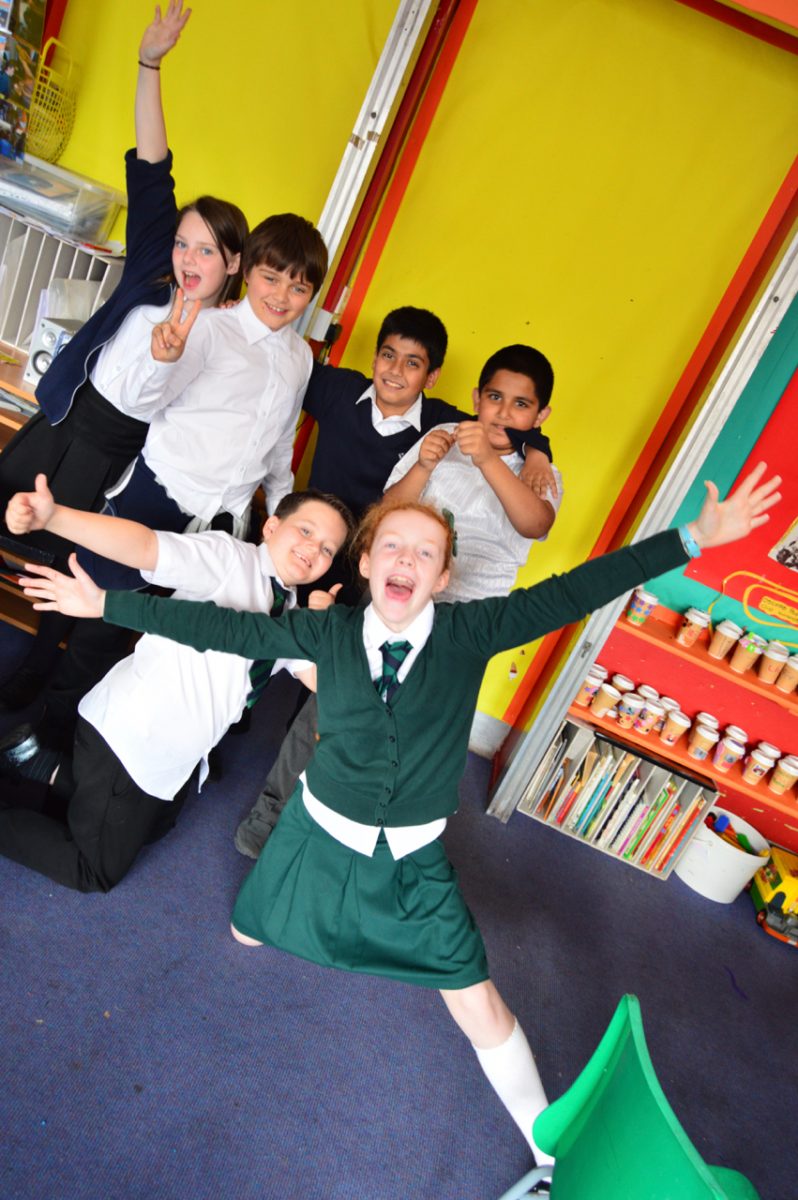





















I’ve enjoyed reading the first two posts and look forward to helping take forward some of the ideas and suggestions for a happy-healthy-school. Great work P6!
We discussed Sandy’s story in class and thought about the difference between sympathy and empathy. Very interesting class discussion today!
In class today we discussed how adults should react when someone tells them they are being bullied. We felt that it was important to listen to both sides of the story and not just jump to conclusions. We also felt it was important to be honest when telling an adult about what was happening and also for the adult to try to help the bully not just blame or punish them.